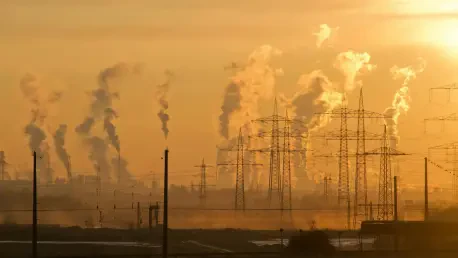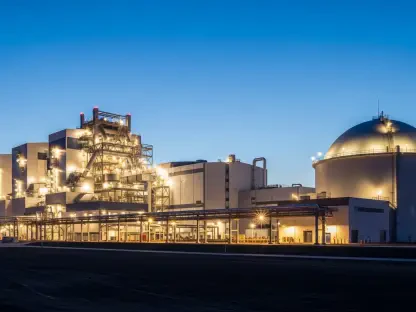Today, we’re diving into a critical issue in Ukraine’s ongoing battle against corruption with Christopher Hailstone, a seasoned expert in Eastern European politics and anti-corruption investigations. With years of experience analyzing the region’s complex political landscape, Christopher offers unparalleled insight into a recent scandal involving Ukraine’s state nuclear power company, Energoatom, and a staggering $100 million kickback scheme uncovered by the country’s anti-corruption bureau. In this interview, we explore the intricate details of the allegations, the key players implicated, the mechanics of the scheme, and the broader implications for Ukraine’s governance and international standing as it navigates wartime challenges and EU accession aspirations.
Can you walk us through the recent findings by Ukraine’s anti-corruption bureau in the energy sector?
Certainly, Ava. The National Anti-Corruption Bureau of Ukraine, or NABU, has exposed what they describe as a massive $100 million kickback scheme centered on Energoatom, the state nuclear power company that supplies over half of Ukraine’s electricity. This isn’t just a financial scandal; it’s a blow to a critical sector, especially as Ukraine faces power outages and Russian attacks on its energy infrastructure. The bureau alleges that a sophisticated criminal organization orchestrated this scheme, exploiting Energoatom’s operations at a time when the country can least afford such vulnerabilities.
What specific roles did the accused individuals play in this alleged scheme at Energoatom?
The investigation points to a network of high-level figures. At the core is a businessman who reportedly led the operation, though names haven’t been publicly disclosed. Alongside him, a former adviser to the energy minister and Energoatom’s head of security are accused of manipulating the company’s purchasing processes. Additionally, four so-called “back office” workers are implicated, suggesting a deeply embedded structure. According to NABU, these individuals effectively controlled Energoatom’s dealings, sidelining legitimate officials and turning a strategic enterprise into a personal cash machine.
How exactly did this kickback scheme function within the company?
The mechanics of the scheme are quite brazen. Investigators say contractors doing business with Energoatom were coerced into paying kickbacks ranging from 10% to 15% of their contract values. If they refused, they risked having payments blocked or losing their supplier status altogether. This wasn’t just extortion; it distorted the entire procurement process, prioritizing corrupt dealings over operational needs. At a time when Energoatom should be fortifying Ukraine’s energy security, these actions potentially undermined critical projects, including protective structures at nuclear plants.
What has been the reaction from Ukraine’s leadership to these serious allegations?
The response from the top has been firm, at least rhetorically. President Volodymyr Zelenskiy has publicly called for a strong legal response, emphasizing that everyone involved must face criminal verdicts. Prime Minister Yulia Svyrydenko has echoed this, pledging government support for the investigation and underscoring anti-corruption as a priority. Energy Minister Svitlana Hrynchuk, while admitting limited knowledge of the case details, has committed to transparency and accountability, hoping to maintain trust with international partners. However, opposition parties are pushing back, with motions to oust cabinet members, signaling growing political tension.
Can you tell us about the investigative efforts by the anti-corruption bureau in uncovering this scheme?
The scale of NABU’s work here is impressive. They’ve conducted 70 searches over a 15-month investigation, involving all their detectives. The evidence they’ve gathered is substantial—1,000 hours of audio recordings and photographs of cash in various currencies, including hryvnias, dollars, and euros, stuffed into bags. This isn’t a superficial probe; it’s a deep dive into systemic corruption. Their findings paint a picture of a strategic enterprise being managed by shadowy figures rather than its rightful stewards, which is a damning indictment of oversight in the energy sector.
How has Energoatom itself responded to the investigation and the searches at its offices?
Energoatom has publicly acknowledged the searches conducted by anti-corruption officials at their offices and stated they are cooperating fully with the investigation. Their stance, at least outwardly, is one of compliance rather than resistance. However, there’s little detail on how they’re addressing the internal failures that allowed such a scheme to allegedly flourish. This cooperation is crucial, especially given the public and international scrutiny they’re under, but it remains to be seen if it will translate into meaningful reform within the company.
What broader impact do you think this scandal could have on Ukraine, especially considering its current challenges?
This scandal couldn’t come at a worse time for Ukraine. With its power grid already battered by Russian strikes, any disruption or distrust in the energy sector is a national security issue. Beyond that, fighting corruption is a key condition for Ukraine’s EU accession, something many Ukrainians see as vital for their future. A case of this magnitude risks undermining confidence among international partners and could fuel domestic discontent, especially as political opposition gains traction. It’s a test of whether Ukraine can uphold the rule of law under immense pressure, and the outcome will likely shape perceptions of its governance for years to come.
What is your forecast for the trajectory of anti-corruption efforts in Ukraine following this case?
I think we’re at a crossroads. On one hand, the depth of this investigation shows that NABU has the capacity and independence to tackle systemic graft, which is encouraging. Their work could set a precedent for accountability, especially if it leads to convictions. On the other hand, the political pushback and wartime strains might limit the government’s ability to enact sweeping reforms. My forecast is cautiously optimistic—progress is possible if there’s sustained international support and domestic pressure for change, but entrenched interests won’t go down without a fight. The next few months will be telling in how far Ukraine can push this anti-corruption agenda amidst its many other battles.









